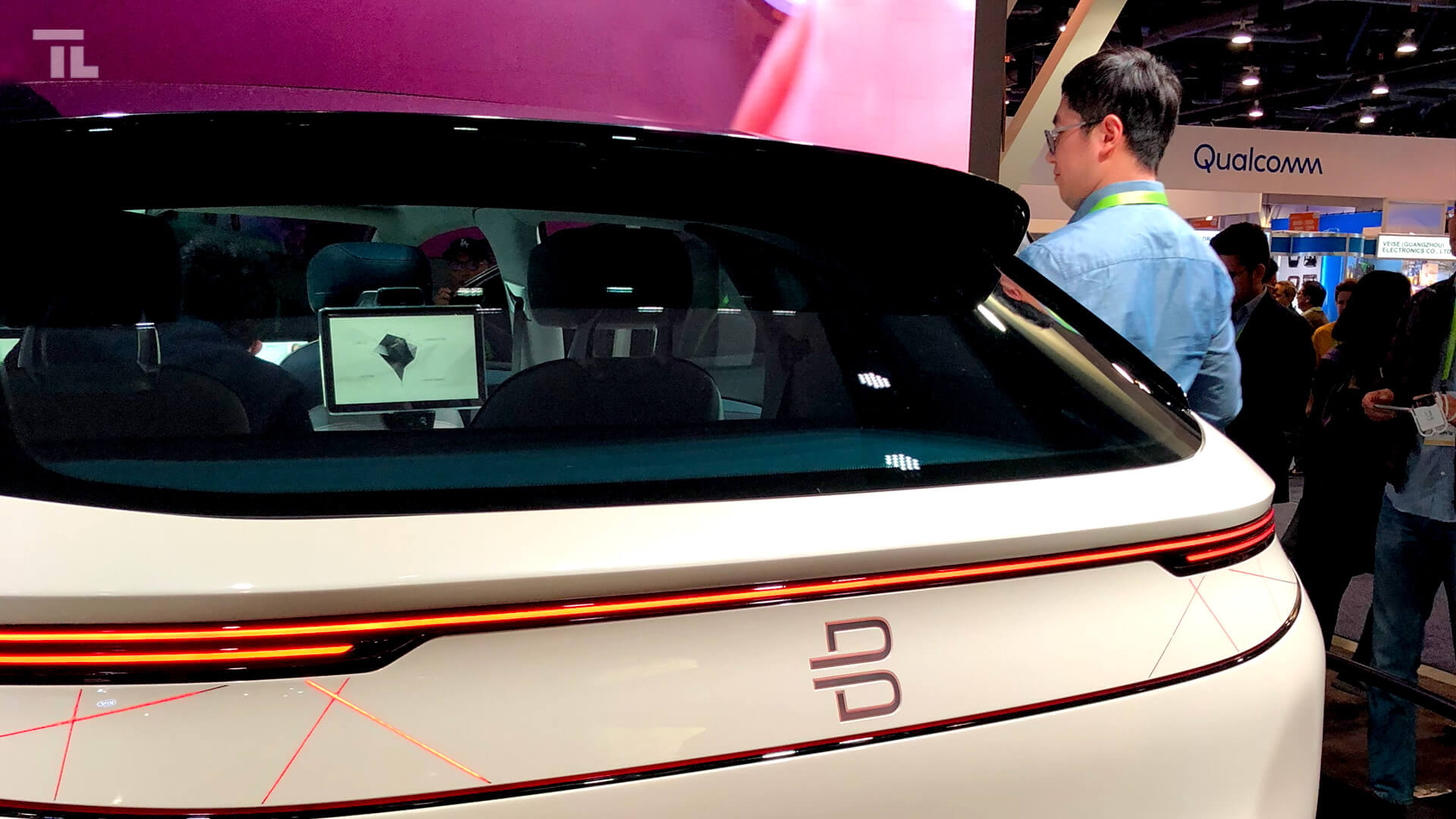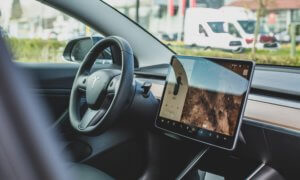As you can imagine, the biggest booths (and often times, the most jam-packed) are the ones revealing concept cars. From Mercedes-Benz to Nissan and Toyota to Lamborghini, the big carmakers are definitely at the Consumer Electronics Show to impress. That doesn’t mean newcomers can’t make a splash, which is the case of Byton. The talk of the town is this Chinese EV startup’ SUV, dubbed a “smart device” #automagic
Byton SUV is presented as the ideal future commercial car and I gotta tell you, it does look the part. The first thing I noticed was that it doesn’t have any handles or mirrors, although it retains the size and general shape of a crossover. When I took a closer look, I could see a button-free dashboard with a long display where presumably, passengers can watch movies or music videos to pass the time.
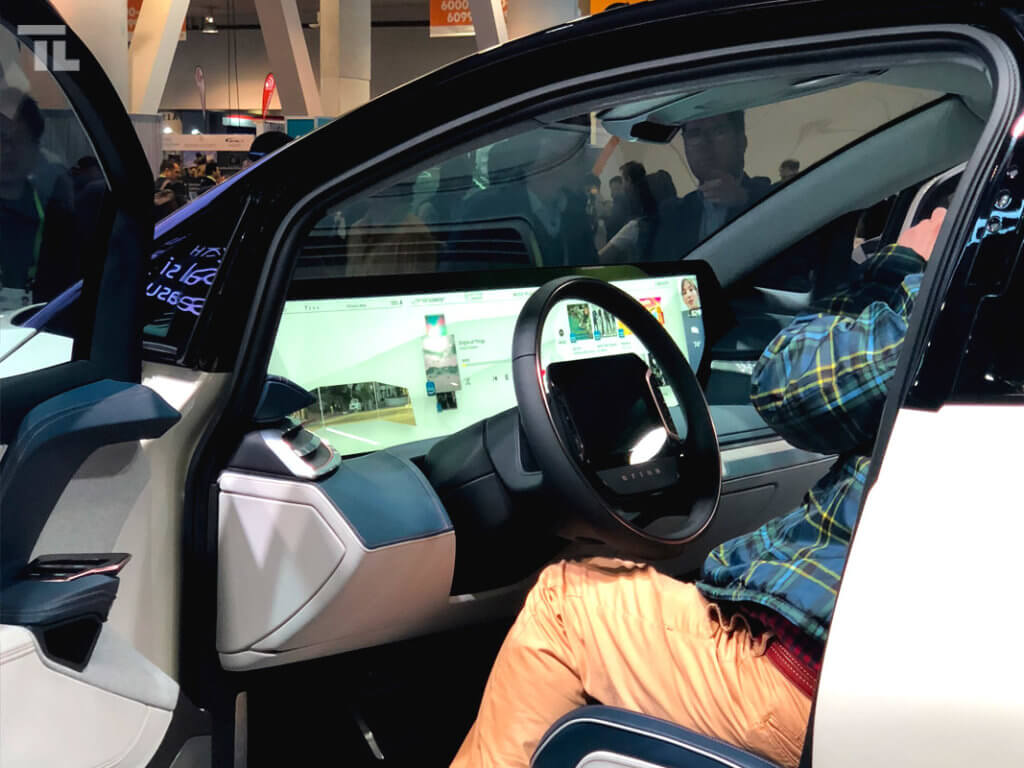
The interior gave me the impression of a digital office on the road, really. Besides the generous display up front, the rear-seat passengers can also take advantage of two extra screens. The front seats rotate 12 degrees inwards, which is a feature that definitely encourages in-car socializing.
To interact with Byton, drivers can use the touchscreen or hand gestures. As you can imagine, a futuristic car like this one is all-electric and is prepared for level 3 ADAS with the option to upgrade to level 4. Nevertheless, the startup equipped it with a wheel for those who might want to retain control of their vehicle.
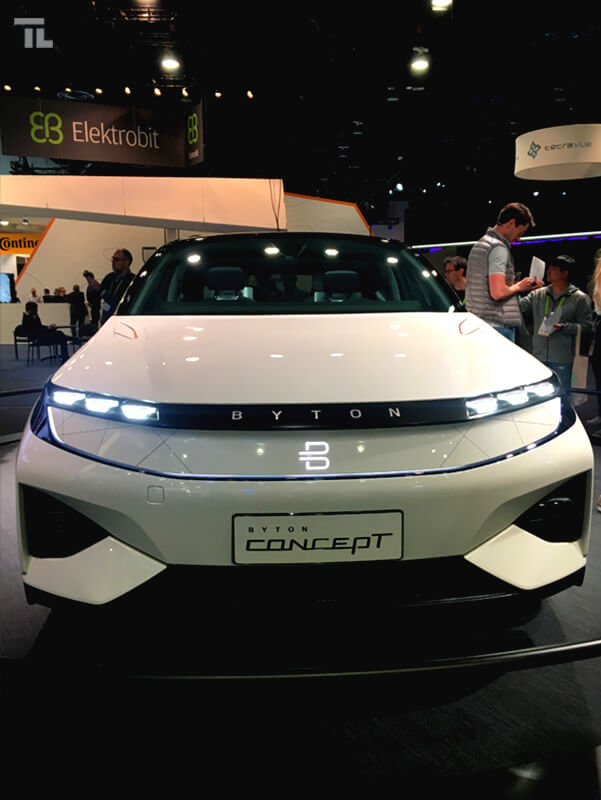
Facial recognition in the B-pillar unlock the vehicle and activates rear-view cameras. Also, Byton has Amazon Alexa integrated, which is one of the reasons it’s marketed as a “smart device”.
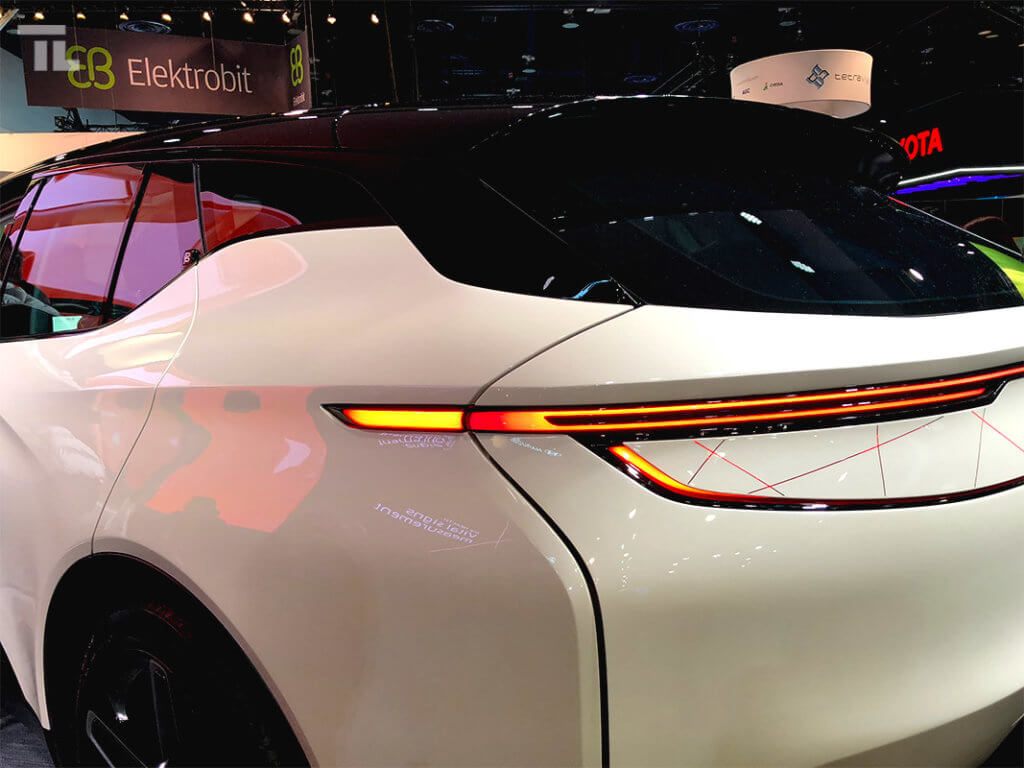
Of course, all that glitz doesn’t matter if it lacks in road performance. I was told that the rear drive model will launch with a 71 Kwh battery pack, granting it a range of around 248 miles, while the all-wheel drive one will boast a 95 kwh battery pack for a 328 mile range. Byton was also keen on saying that their vehicle would charge up to 80% within 30 minutes which is pretty great, if you ask me.
Also, you should know that the rear drive model is counting on a single motor that gives 200kW, while the all-wheel will carry one more for 350kW of power.
The most surprising thing is that Byton believes they will need no more than a year to release it. In fact, the company said China would see it hitting the road in 2019 and the U.S., in 2020. The starting price is set to be $45,000.
I’ll definitely keep an eye on them in the following months; it’s easy to talk the talk but will Byton walk the walk?
Follow TechTheLead on Google News to get the news first.

